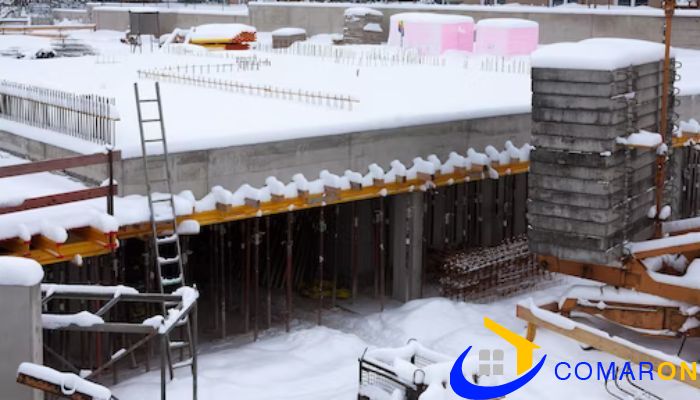
Construction can be a complex and challenging process, but it can be even more challenging during the winter months. Cold weather, snow, and ice can all create obstacles for construction workers and project managers. However, with careful planning and preparation, it is possible to successfully complete construction projects during the winter.
Challenges of Winter Construction
There are a number of challenges that construction professionals face during the winter months. Some of the most common challenges include:
- Frozen ground: Frozen ground can make it difficult to excavate, dig foundations, and pour concrete.
- Snow and ice: Snow and ice can create hazardous conditions for workers and can also damage equipment.
- Cold weather: Cold weather can slow down the curing process for concrete and other materials.
- Reduced daylight hours: Reduced daylight hours can shorten the workday and make it more difficult to complete tasks on time.
Considerations for Winter Construction
There are a number of things that construction professionals can do to mitigate the challenges of winter construction. Some important considerations include:
- Schedule carefully: It is important to schedule projects carefully to avoid working in the worst winter conditions. For example, it is best to avoid pouring concrete in freezing temperatures.
- Protect materials: Construction materials should be protected from the cold and moisture. This may involve tarping materials, storing them in a heated enclosure, or using special cold-weather admixtures.
- Use specialized equipment: Some specialized equipment may be needed to work in cold weather conditions. For example, heated concrete mixers and cold-weather tires may be necessary.
- Take care of workers: Construction workers should be provided with warm clothing and breaks to warm up in cold weather conditions.
Benefits of Winter Construction
Despite the challenges, there are also some benefits to winter construction. For example, winter construction projects may be less expensive than summer projects due to lower demand for services. Additionally, there may be less competition for labor and materials during the winter months.
Overall, winter construction can be a viable option, but it is important to carefully consider the challenges and take steps to mitigate them.
Here are some additional tips for successful winter construction:
- Communicate regularly: It is important to communicate regularly with all stakeholders, including workers, subcontractors, and owners, about the project schedule and any potential delays due to weather.
- Be flexible: Be prepared to adjust the project schedule as needed to accommodate for bad weather.
- Have a backup plan: Have a backup plan in case of severe weather conditions. This may involve working indoors or rescheduling work for a later date.
By following these tips, construction professionals can increase their chances of success when completing projects during the winter months.
Visit for Various Modular Kitchen Design
